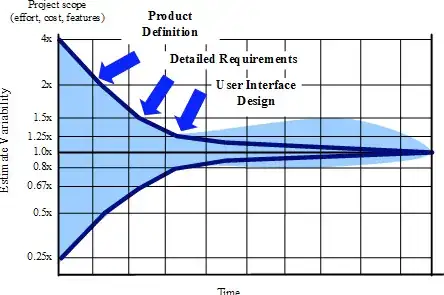This is one SW development problem that hits the sea of developers as they crash into the rocks of management. Somewhere down the line the estimate given by the programmer gets translated to a date and quite soon it translates into a deadline. Against this ticking bomb, efficiency can be increased, quite often quality gets sacrificed. A cursory googling threw up notorious amounts of links and studies and sarcasms (read Dilbert) on the deviation of estimates. I have a feeling that some companies have given this up already.As a programmer I find it very difficult to give an estimate without doing a prototype; Loved the quote from Jørgensen and Grimsta in Wikipedia
It's easy to estimate what you know.
It's hard to estimate what you know you don't know. (known unknowns)
It's very hard to estimate things that you don't know you don't know. (unknown unknowns)
Know when there are multiple SW modules involved in product development, it is almost impossible to have a good estimate that will deliver good quality. If all the studies are also pointing to the same thing, I am wondering is it not time to throw this process out from SW development.
